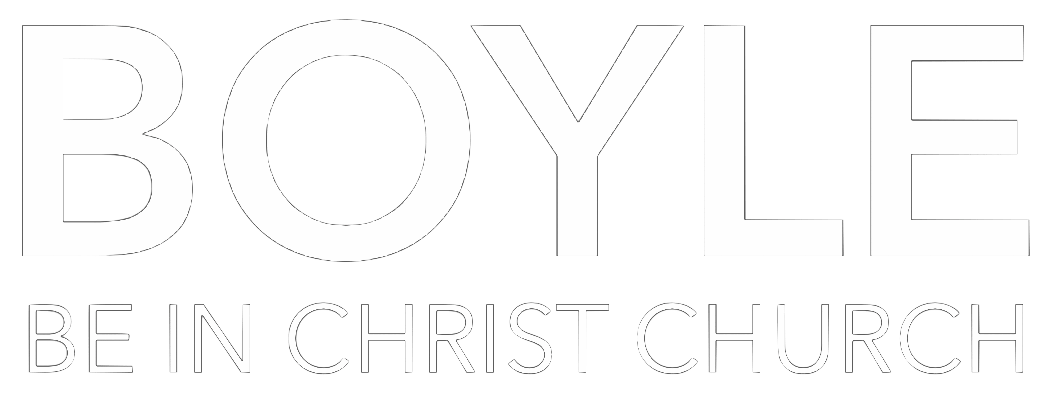A By-law relating generally to the transaction of the affairs of
BE IN CHRIST CHURCH OF CANADA
(a Federal Corporation)
hereinafter referred to as the “Denomination”
Originally adopted by the Annual General Meeting
SECTION I : DEFINITIONS AND INTERPRETATION
1.01 Definitions
In this By-law, and in all other By-laws, Policies and resolutions, unless the context otherwise requires, the following definitions shall apply:
“Act” means the Canada Not-for-Profit Corporations Act, S.C. 2009, c. 23, including any regulations made pursuant to the Act and any statute or regulations that may be substituted, as amended from time to time.
“Active Members of a Congregation” or “Active Members” means members of a Congregation who meet the requirements of membership in the Articles of Government (Division 1, Article 3 Section 2) and names appear on the Congregation’s active membership list.
“Annual Conference” means the annual conference of the Denomination during which the annual general Meeting of Members takes place.
“Articles” means the original or restated articles of incorporation or articles of amendment, amalgamation, continuance, reorganization, arrangement or revival of the Denomination.
“Articles of Faith and Doctrine” means the Articles of Faith and Doctrine of the Denomination as referenced in the Articles, which forms a part of the Be In Christ Canada Handbook on Faith and Life, and may be amended from time to time by the Denomination through the Annual General Meeting.
“Articles of Government” means the articles of government of the Denomination, including any of its Policies and Procedures, which forms part of the Be In Christ Canada Handbook on Faith and Life, and may be amended from time to time by the Denominational Board of Directors.
“Assistant Chair” means the assistant chair of the Board of Directors of the Denomination appointed in accordance with this By-law, who has all of the rights and duties associated therewith.
“Be In Christ Canada Handbook on Faith and Life” means the Articles (including the Purposes and Articles of Faith and Doctrine), this By-law, all other By-laws and the Articles of Government adopted by the Denomination from time to time, and by which the Denomination and Member Congregations of the Denomination are called upon to abide by and to carry out their charitable Purposes in congruence with.
“Board” or “Board of Directors” shall mean the Board of Directors of the Denomination.
“By-law” or “By-laws” means this By-law and all other By-laws of the Denomination from time to time in force and effect, including the General Operating By-law herein.
“Chair” means the chair of the Board of Directors of the Denomination appointed in accordance with this By-law, who has all of the rights and duties associated therewith.
“Congregation” or ”Member” means a local church congregation associated with the Denomination that has fulfilled the conditions to be and has been admitted as a Member in accordance with this By-law, and has the rights and duties associated therewith.
“Covenant Agreement” means the covenant agreement, once adopted or amended from time to time by the Denomination, the terms of which set out the relationship between the Denomination and the Congregations.
“Delegate” means a delegate who is appointed to represent and vote, with a single vote each, on behalf of a Congregation in person at a Meeting of Members in accordance with this By-law and any applicable Policies, and has the rights and duties associated therewith.
“Denomination” means Be in Christ Church of Canada, a federal non-share capital corporation, and any successor to such corporation, through which its Directors, Members, employees, volunteers and agents may associate and collectively work together in the fulfillment of the Purposes.
“Director” means a member of the Board of Directors.
“Executive Director” means the executive director of the Denomination appointed in accordance with this By-law, who has all of the rights and duties associated therewith.
“Family Members” means a Person’s Spouse, children, parents, siblings, or the Spouses of such children, parents or siblings, or the children or parents of such Person’s Spouse(s), who are living with and/or are financially supporting or supported by the Person.
“Senior Resource Team” means those employees of the Denomination who, by virtue of their job responsibilities, are designated as executive staff within the Employee structure of the Denomination.
“Licensed Marks” means the marks licensed by the Denomination to the Congregations in accordance with Covenant Agreements.
“Meeting of Members” includes any annual general meeting or special meeting of Members.
“Member” or “Congregation” means a member of the Denomination.
“Members” or “Membership” or “Congregations” means the collective membership of the Denomination.
“Membership Date” means, in relation to an annual Meeting of Members, December 31 of the year immediately past. In relation to a special Meeting of Members, the month-end date that is more than thirty-five (35) days prior to the start of a special Meeting of Members.
“Ministry Leaders” means ordained ministers and pastors, commissioned workers, chaplains and others who are credentialed by the Denomination from time to time.
“Officer” means an officer of the Denomination who is elected or appointed in accordance with this By-law, and has the rights and duties associated therewith.
“Ordinary Resolution” means a resolution passed by a majority of the votes cast on that resolution.
“Person” means an individual in his personal capacity.
“Policies and Procedures” means any policies and procedures of the Denomination as set out in the Articles of Government, which have been adopted pursuant to this By-law from time to time concerning the means of pursuing the Purposes of the Denomination, including any agreements and/or licences provided for therein that Congregations may be required to enter into from time to time, which policies and procedures form part of the Articles of Government.
“Purposes” means the purposes of the Denomination set out in the Articles.
“Regulations” means the regulations made under the Act, as amended, restated or in effect from time to time.
“Secretary” means the secretary of the Denomination appointed in accordance with this By-law, who has all of the rights and duties associated therewith.
“Special Resolution” means a resolution passed by a majority of not less than two thirds (2/3rds) of the votes cast on that resolution.
“Spouse” means a Person’s spouse of the opposite sex who has been joined together by marriage with the Person.
“Treasurer” means the treasurer of the Denomination appointed in accordance with this By-law, who has all of the rights and duties associated therewith.
1.02 Interpretation
a. This By-law and any other By-laws of the Denomination shall be strictly interpreted at all times in accordance with and subject to the Purposes and Articles of Faith and Doctrine referenced in the Articles of the Denomination, which Purposes and Articles of Faith and Doctrine for purposes of this By-law are incorporated by reference and made a part hereof. If any of the provisions contained in this By-law are inconsistent with those contained in the Articles or the Act, the provisions contained in the Articles or the Act, as the case may be, shall prevail.
b. In this By-law, all other By-laws and all resolutions adopted by the Denomination, unless the context otherwise requires, the following interpretations shall apply: (i) except where specifically defined herein (ii) all terms contained herein and which are defined in the Act shall have the meanings given to such terms in the Act; (iii) words importing the singular number include the plural and vice versa; and (iv) words importing the masculine gender include the feminine and neuter genders and vice versa.
c. The interpretation of the Be In Christ Canada Handbook on Faith and Life, and whether there has been material compliance with its provisions, shall be determined in the sole discretion of the Board of Directors. Any decision by the Board of Directors in relation to interpretation of the Be In Christ Canada Handbook on Faith and Life shall continue to have force and effect until amended, repealed, or replaced by a subsequent Ordinary Resolution of the Members, brought in compliance with General Operating Bylaw One Section 3 Paragraph 16.
SECTION II : MEMBERSHIP
2.01 Classes and Conditions of Membership
Pursuant to the Articles, there shall be one (1) class of Members in the Denomination consisting of Congregations. Membership in the Denomination shall consist only of those Congregations recorded as Members as of the date of passing this By-law. Membership in the Denomination shall thereafter only be available to those prospective Congregations which meet the following conditions and have been accepted into Membership by the Board:
a. is an independent congregation that is either a legal entity or an unincorporated association of individuals, in whatever form or expression such a congregation may take from time to time, which has been granted charitable status in accordance with the Income Tax Act (Canada) and whose constating documents reflect the Denomination’s requirements as set out in the Articles of Government and any other applicable Policies and Procedures;
b. has submitted an application for Membership in the Denomination which indicates that: (i) it is in substantive agreement and will continue in agreement with the Be In Christ Canada Handbook on Faith and Life; and (ii) its constating documents are not and will not be contradictory to the Be In Christ Canada Handbook on Faith and Life;
c. has entered into, and will at all times be in agreement, with the Covenant Agreement, the terms of which set out the nature of the relationship between the Denomination and the Congregation, together with any other agreements required to be entered into with the Denomination in accordance with the Articles of Government and any applicable Policies and Procedures; and
d. has satisfied any other applicable conditions as prescribed by the Board from time to time or as set out in the Articles of Government and any applicable Policies and Procedures.
2.02 Admission to Membership
Applications for Membership in the Denomination shall be made in such form, in such manner, and according to such procedures as the Board may, from time to time and in its sole discretion, establish in the applicable Policies and Procedures. If the Board is satisfied that the applicant satisfies all of the conditions of Membership set out in Section 2.01, the Board may, in its sole discretion, admit the applicant to be a Member. The Board may, from time to time, delegate the application review and acceptance duties to senior management of the Corporation to accept applications on a temporary basis, subject to ratification by the Board. All decisions by the Board shall be final and binding without the need to give any reasons for the acceptance or rejection of any application. Each applicant shall promptly thereafter be informed in writing by the Executive Director of the decision of the Board.
2.03 Duties and Rights
Members of the Denomination shall have the following duties and rights:
Duties:
a. the duty to further the Purposes and Articles of Faith and Doctrine of the Denomination;
b. the duty to respect and uphold the provisions and procedures of the Denomination as expressed in its Be In Christ Canada Handbook on Faith and Life and to conduct its affairs in a manner that does not bring harm or disrepute to the Denomination and other Congregations;
c. the duty and right to voluntarily contribute their time, talent and treasure to the work of the Denomination, to the best of their ability;
d. the duty to uphold the covenants made through a Covenant Agreement, including observance of any applicable standards in place from time to time;
e. the duty to utilize the Denomination in relation to the recruitment, selection and placement of its senior pastoral staff;
f. the duty to enrol eligible employees in the group benefit and pension plans provided through the Denomination as well as to reimburse the Denomination for the expenses related thereto;
g. the duty to provide a written annual report and financial statements to the Denomination in a form provided to the Congregation by the Denomination;
h. the duty to support the compassionate and global ministries of the Denomination through engagement of their members and the provision of financial support to the best of their ability;
Rights:
i. the right to receive notice of, attend, speak and participate at all Meetings of Members through its Delegates entitled to vote;
j. the right to vote at all Meetings of Members through Delegates appointed in accordance with this By-law;
k. the right to represent itself to the public as a Member of the Denomination and to use the name, copyrighted materials and other intellectual property of the Denomination to further the Purposes and Articles of Faith and Doctrine, as well as its own charitable Purposes, including any license or charter agreements required to be entered into by the Member, in the manner determined by the Board from time to time in its sole discretion and set out in the Articles of Government.
l. the right to access and utilize the various ministers, resources, programs and services (including, but not limited to, pastoral relations, human resources, church governance and health/growth, leadership development and conflict resolution) and ministry, governance/organizational and administrative expertise of the Denomination in order to better carry out its own ministry programs and activities, as may be more particularly set out in the Articles of Government;
m. the right to access and utilize financial resources of the Denomination including, but not limited to, loan funds and grants, either directly through the Denomination or the affiliated entities, such as the BIC Fund;
n. the right to participate in camping, youth or other ministries of the Denomination, both regionally and nationally;
o. the right to access resources and engaged in networking with the various Congregations of the Denomination, together with the Denomination’s various related organizations including, but not limited, to the International Brethren in Christ Association, Mennonite Central Committee, Mennonite World Conference and the Evangelical Fellowship of Canada;
p. to have such additional rights and privileges as determined by the Board from time to time, as may be more particularly set out in the Articles of Government.
2.04 No Membership Fees or Dues
There shall be no membership fees or dues unless otherwise directed by the Board.
2.05 Suspension and Termination of Membership
a. The interest of a Member in the Denomination is non-transferable.
b. The suspension of any Congregation from Membership in the Denomination, including the delegation of certain aspects of the suspension process to the Senior Resource Team of the Denomination, shall occur upon such grounds and in such manner as determined by the Board from time to time in its sole discretion and set out in the Articles of Government. Any decision by the Senior Resource Team to suspend a Congregation shall be subject to ratification by the Board of Directors.
c. A Member may resign at any time from Membership in the Denomination for any reason, provided that such Member has provided the Denomination with ninety (90) days’ written notice of its intention to seek the approval of its membership to resign at a duly called membership meeting by delivering written notification of the same to the Executive Director. The process to be followed by a Member which is seeking to resign from the Denomination shall be set out in the Articles of Government (Articles of Government: Div. 1 Article 7 & 8).
d. A Congregation’s removal from Membership shall automatically occur upon the happening of any of the following: (i) the Congregation fails to maintain all of the conditions for Membership set out in Section 2.01; (ii) the Congregation is removed from Membership by the Board by Ordinary Resolution, provided that the Member is first offered the opportunity to be heard; (iii) the Congregation is liquidated or dissolved as a corporation or an unincorporated association of individuals, as applicable; or (iv) the Denomination is liquidated or dissolved under the Act. Subject to the Articles, upon any termination of Membership, all rights of the Congregation as a member automatically cease.
2.06 Delegates
a. A Member shall vote at all Meetings of Members by means of individual Delegates appointed on behalf of each Member.
b. All persons credentialed by Be In Christ Canada and serving as a staff person in a Member Congregation shall be a delegate to the Meetings of Members. Participation in the Meetings of the Members may only be waived by the Executive Director of Be In Christ Canada.
c. A Member shall be entitled to appoint additional Delegates in the following situations, as applicable:
i. One (1) additional Delegate shall be appointed for each fifty (50) attendees or part thereof, with the number of attendees of the Congregation being determined by the average attendance of all public worship services in the year prior; and
ii. Where a Congregation has one (1) or more Active Members who serve either as Directors, team members and/or committee members of the Denomination, then each of the said Active Members shall be eligible for appointment as additional Delegates by the Congregation; and
iii. Where a Congregation has one (1) or more Active Members who are credentialed ministers of the Denomination that serve with other ministry organizations the person shall be eligible for appointment as additional Delegates by the Congregation; and
iv. Where a Congregation has one (1) or more Active Members who are credentialed ministers of the Denomination that have retired in good standing after at least twenty (20) years of service in any Congregation of the Denomination, then each of the said Active Members shall be eligible for appointment as additional Delegates by the Congregation.
d. The Secretary of each Member shall certify to the Denomination that the Delegates of the Congregation were duly appointed by the Member.
SECTION III : MEETING OF MEMBERS
3.01 Annual General Meeting at Annual Conference
The annual general Meeting of Members shall be held at the Annual Conference that is to take place as determined by the Board of Directors, provided that the annual general Meeting of Members shall be held fifteen (15) months from the holding of the last annual general Meeting of Members and not more than six (6) months after the end of the Denomination’s fiscal year end. The annual general Meeting of Members shall be held for the purpose of considering the financial statements and reports of the Denomination required by the Act to be presented at the meeting, electing Directors from the slate of nominations presented by the Nominating Committee of the Board of Directors, appointing the public accountant and transacting such other business as may properly be brought before the meeting or is required under the Act.
3.02 Special Meetings
The Board may, at any time, call a special Meeting of Members for the transaction of any business which may properly be brought before the Members or for any other reason in accordance with the requirements of the Act.
3.03 Place of Meeting
Subject to the Act, Meetings of Members may be held at any place within Canada as the Board may determine.
3.04 Notice of Meetings
a. Notice of any Meeting of Members shall be provided as follows:
i. by mail, courier or personal delivery to each Congregation entitled to vote at the meeting, during a period of twenty-one (21) to sixty (60) days before the day on which the meeting is to be held; or
ii. by telephonic, electronic or other communication facility to each Congregation entitled to vote at the meeting, during a period of twenty-one (21) to thirty-five (35) days before the day on which the meeting is to be held; or
iii. at least once in a publication of the Denomination that is sent to all its Congregations, during a period of twenty-one (21) to sixty (60) days before the day on which the meeting is to be held.
b. Notice of a Meeting of Members shall also be given to each Director and to the public accountant of the Denomination during a period of twenty (21) to sixty (60) days before the day on which the meeting is to be held.
c. Notice of a Meeting of Members at which special business is to be transacted shall state the nature of that business in sufficient detail to permit a Member to form a reasoned judgment on the business, and state the text of any Special Resolution to be submitted to the meeting.
3.05 Waiver of Notice
A Congregation and any other Person entitled to attend a Meeting of Members may in any manner and at any time waive notice of a Meeting of Members, and attendance of any such Congregation or Person at a Meeting of Members shall constitute a waiver of notice of the Meeting, except where such Congregation or Person attends a Meeting for the express purposes of objecting to the transaction of any business on the grounds that the Meeting of Members is not lawfully called.
3.06 Persons Entitled to be Present
The only Persons entitled to be present at a Meeting of Members shall be those entitled to vote at the meeting, the Directors, the public accountant of the Denomination and such other Persons who are entitled or required under any provision of the Act, Articles or By-laws of the Denomination to be present at the meeting. Any other Person may be admitted to a Meeting of Members in accordance with the Articles of Government or on the invitation of the chair of the meeting.
3.07 Quorum
A quorum for any Meeting of Members shall be constituted by the presence of a majority of Delegates who have been duly appointed by their respective Congregations, are entitled to vote at the meeting on behalf of their Congregations and have registered for such Meeting of Members in accordance with the Denomination’s Articles of Government, except where otherwise provided for in the Act or the Governing Documents of the Denomination. If a quorum is present at the opening of a Meeting of Members, the Members present may proceed with the business of the Meeting of Members even if a quorum is not present throughout the Meeting of Members.
3.08 Chair of Members Meetings
The chair of Member Meetings shall be: (i) the Executive Director; or (ii) if the Executive Director is absent or unable to act, then a member of the Leadership Cabinet or a Director who is appointed by the Board.
3.09 Votes to Govern
At any meetings of the Members, every question shall, unless otherwise provided by the Articles, the By-laws or by the Act, be determined by a majority of the votes cast on the question. In case of an equality of votes, the chairperson of the meeting, in addition to an original vote, shall have a second or casting vote.
3.10 Show of Hands
Subject to the Act, any question at a Meeting of Members shall be decided by a show of hands unless a ballot has been demanded by a Member entitled to vote at the meeting or otherwise required. Unless a ballot is demanded, a declaration by the chair of the meeting as to whether or not the question or motion has been carried and an entry to that effect in the minutes of the meeting shall, in the absence of evidence to the contrary, be evidence of the fact without proof of the number or proportion of the votes recorded in favour of or against the motion.
3.11 Ballots
On any question proposed for consideration at a Meeting of Members, and whether or not a show of hands has been taken thereon, the chair of the meeting may require a ballot or any Member entitled to vote on such question at the meeting may demand a ballot. A ballot so demanded shall be taken in such manner as the chair shall direct. A demand for a ballot may be withdrawn at any time prior to the taking of the ballot. The result of the ballot so taken shall be the decision of the Members on the question.
3.12 Participation at Meetings by Electronic Means
If the Denomination chooses to make available a telephonic, electronic or other communication facility that permits all participants to communicate adequately with each other during a meeting of members, any person entitled to attend such meeting may participate in the meeting by means of such telephonic, electronic or other communication facility in the manner provided by the Act. A person participating in a meeting by such means is deemed to be present at the meeting. Notwithstanding any other provision of this by-law, any person participating in a meeting of members pursuant to this section who is entitled to vote at that meeting may vote, in accordance with the Act, by means of any telephonic, electronic or other communication facility that the Corporation has made available for that purpose.
3.13 Meetings Held Entirely by Electronic Means
Meetings of members may not be held entirely by telephonic, an electronic or other communication facility.
3.14 Registration of Delegates
All Delegates shall be required to register as such at the Annual Conference in order to be eligible to vote at the annual Meeting of Members.
3.15 Rules of Order
Any questions of procedures at or for any meetings of the Members, which have not been provided for in this By-law or by the Act, shall be determined by the chairperson of the meeting and communicated to the Members in advance of any such meeting.
SECTION IV : DIRECTORS
4.01 Powers
Subject to the Act and the Articles, the Board of Directors shall manage or supervise the management of the activities and affairs of the Denomination. The Board addresses its specific duties and responsibilities in the Articles of Government. Among its various duties and responsibilities, the Board shall be responsible to act as the nominating committee of the Denomination to recruit, screen and nominate candidates for election as Directors and other positions within the Denomination at the annual Meeting of Members.
4.02 Number of Directors
The Board shall consist of the minimum and maximum number of Directors specified in the Articles. The precise number of Directors on the Board shall be determined from time to time by the Members by Ordinary Resolution or, if the Ordinary Resolution empowers the Directors to determine the number of the Directors, by resolution of the Board.
4.03 Qualifications
Each Director shall be an individual who: (i) is an Active Member of a Be In Christ Canada Congregation in good standing; (ii) is at least eighteen (18) years of age; (iii) is in basic agreement with the Be In Christ Canada Handbook on Faith and Life; (iv) has not been found by a court in Canada or elsewhere to be mentally incompetent (v) does not have the status of a bankrupt; and (vi) is not an ineligible individual as defined in the Income Tax Act (Canada). Directors must not be employees of the Denomination. At
least two (2) of the Directors must not be Officers of the Denomination or be officers or employees of the Denomination’s affiliates.
4.04 Election and Term
a. Subject to the Articles, Directors shall be affirmed by the Members by Ordinary Resolution at each annual Meeting of Members at which an election of Directors is required. The Directors’ term of office shall be three (3) years calculated from the date of the meeting at which they are affirmed until the close of the third (3rd) annual meeting next following or until their successors are elected.
b. A Director not affirmed for an expressly stated term ceases to hold office at the close of the first (1st) annual Meeting of Members following the Director’s affirmation. If Directors are not affirmed at a Meeting of Members, the incumbent Directors shall continue in office until their successors are affirmed.
c. The maximum number of terms for each Director is three (3) terms of three (3) years. A Director will be eligible for re-election to the Board at the end of his or her term up to the maximum number of terms provided that such Director continues to meet the qualification requirements to be a Director. Upon the completion of the maximum term on the Board, a minimum of a one (1) year absence is required before eligibility for re-election to the Board is restored.
4.05 Appointed Directors
As contemplated in the Articles, the Board may appoint one or more Directors, who shall hold office for a term expiring not later than the close of the next annual general Meeting of Members, but the total number of Directors so appointed may not exceed one-third (1/3) of the number of Directors elected at the previous annual general Meeting of Members.
4.06 Consent to be a Director
An individual who is elected or appointed to hold office as a Director is not a Director, and is deemed not to have been elected or appointed to hold office as a Director, unless:
a. the individual was present at the meeting when the election or appointment took place and did not refuse to hold office if such Person is present at the meeting when the election or appointment takes place,
b. the individual was not present at the meeting when the election or appointment took place and consented to hold office in writing before the election or appointment or within ten (10) days after it if such Person is not present at the meeting, or
c. the individual was not present at the meeting when the election or appointment took place and by acting as a Director pursuant to such Person’s election or appointment is a Director.
4.07 Resignation
A resignation of a Director becomes effective at the time a written resignation is sent to the Denomination or at the time specified in the resignation, whichever is later. A Director who has resigned may not submit to the Denomination a written statement pursuant to section 131 of the Act.
4.08 Removal
The Members may, by Ordinary Resolution passed at a special Meeting of Members, remove any Director from office before the expiration of the Director’s term and may elect a qualified individual to fill the resulting vacancy for the remainder of the term of the Director so removed, failing which such vacancy may be filled by the Board. A Director may also be removed if he no longer fulfils all of the qualifications to be a Director in accordance with Section 4.03 as determined by the Board. A Director who is being removed or has been removed may not submit to the Denomination a written statement pursuant to section 131 of the Act.
4.09 Filling Vacancies
Subject to the Act and the Articles, a quorum of the Directors may fill a vacancy in the Board, except a vacancy resulting from an increase in the number or the minimum or maximum number of Directors, or from a failure of the Members to elect the number of Directors required to be elected at any Meeting of Members. A Director appointed or elected to fill a vacancy holds office for the unexpired term of their predecessor.
4.10 Remuneration of Directors
As required by the Articles, Directors shall serve without remuneration, and no Director shall directly or indirectly receive any profit from his or her position as such, provided that a Director may be reimbursed for reasonable expenses incurred in performing his or her duties.
4.11 Remuneration of Officers, Agents, Employees
Subject to the Articles, the Directors of the Denomination may fix the reasonable remuneration of the Officers, committee members and employees of the Denomination and may delegate any or all of this function as it determines to be appropriate. However, no Officer who is also a Director shall be entitled to receive remuneration for acting as a Director. Any Officer, committee member or employee of the Denomination may receive reimbursement for their expenses incurred on behalf of the Denomination in their respective capacities as an Officer, committee member or employee, subject to any policy in this regard that may be adopted by the Board from time to time.
4.12 Delegation to Committees
a. Subject to the Act, the Board may appoint from their number a managing director or a committee of Directors (which may be referred to as an executive committee) and delegate to the managing director or committee any of the powers of the Board, except those which may not be delegated by the Board pursuant to subsection 138(2) of the Act. For greater clarity, where an executive committee is in place, it may not:
i. submit to the members any question or matter requiring the approval of Members;
ii. fill a vacancy among the Directors or in the office of public accountant or appoint additional Directors;
iii. issue debt obligations except as authorized by the Directors;
iv. approve any financial statements referred to in section 172 of the Act;
v. adopt, amend or repeal By-laws; or
vi. establish contributions to be made, or dues to be paid, by Members under section 30 of the Act.
b. The Board may, from time to time and in its sole discretion, also appoint any Board committee or other operational committee, as it deems necessary or appropriate, with such purposes and, subject to the Act, such powers as the Board shall set out in the Policies and Procedures. Any committee member may be removed by the Board. Unless otherwise determined by the Board, a committee shall have the power to fix its quorum at not less than a majority of its members, to elect its chair and to otherwise regulate its procedure. The Board may fix, by Ordinary Resolution, the remuneration to be paid to any committee member.
4.13 Board of Directors Meetings
a. Regular and Special Meetings – Regular meetings of the Board shall be held at such time and place as shall be determined by the Chair or approved by the Board, but not less than once a year. Special meetings of the Board may be called by the Chair, or by the Secretary on advice of the Chair, or upon written request of a majority of the Directors to the Chair or the Secretary who shall then give notice of a special meeting of the Board to each Director.
b. Notice of Meetings – All regular or special meetings of the Board shall be called with not less than a minimum of 24 hours’ written, telephone or electronic, including facsimile transfer or email, notice to each Director before the Board meeting is to take place. Where the Board has appointed designated dates for regular meetings of the Board at an hour to be named, no notice needs to be given for such meetings. A Board meeting may be held without notice immediately before or following the annual Meeting of Members, provided that a quorum of Directors is present. Notice of an adjourned meeting is not required if the time and place of the adjourned meeting is announced at the original meeting. No notice of meeting need specify the purpose of or the business to be transacted at the meeting, save and except for those matters referred to in subsection 138(2) of the Act which are set out in Section 4.12(a) of this By-law.
c. Waiving Notice – A Director may waive notice of a Board meeting, and attendance of a Director at a Board meeting is a waiver of notice of the meeting, except if the Director attends a Board meeting for the express purpose of objecting to the transaction of any business on the grounds that the meeting is not lawfully called.
d. Quorum – A majority of the number of Directors specified in the Articles constitutes a quorum at any meeting of the Board; provided that where there is a minimum and maximum number of Directors specified in the Articles, a quorum shall be a majority of the number of Directors determined in accordance with Section 4.02. For the purpose of determining quorum, a Director may be present in person, or, if authorized under this By-law, by teleconference and/or by other electronic means.
e. No Alternate Directors – No Person shall act for an absent Director at a Board meeting.
f. Chairperson of the Meeting – The chairperson of Board meetings shall be the Chair or, alternatively, the Assistant Chair if the Chair is absent or unable to act. In the event that the Chair and the Assistant Chair are absent, the Directors who are present shall choose one of their number to chair the meeting.
g. Voting Rights – Each Director shall have one (1) vote on every question put to the meeting. All questions arising at any Board meeting shall be decided by an Ordinary Resolution of the Directors present and voting, unless the Act or the By-laws otherwise provide. A Director shall be considered to be present at a meeting of Directors if such Director attends the meeting of Directors either in person or, if authorized under this By-law, by teleconference and/or by other electronic means. In case of an equality of votes, the chairperson of the meeting in addition to an original vote shall have a second or casting vote.
h. Participation at Meeting by Telephone or Electronic Means – If all of the Directors consent, a Director may, in accordance with the Regulations, participate in a Board meeting, by means of a telephonic, electronic or other communications facility that permits all participants to communicate adequately with each other during the meeting. A Director participating in the meeting by such means shall be deemed for the purposes of the Act to have been present at that meeting. A consent pursuant to this Section may be given before or after the meeting to which it relates and may be given with respect to all meetings of the Board and committees of the Board.
i. Dissent at Meeting – Subject to the Act, a Director who is present at a Board meeting or a meeting of a committee of Directors is deemed to have consented to any resolution passed or action taken at the meeting unless:
i. the Director requests a dissent to be entered in the minutes of the meeting; or
ii. the Director sends a written dissent to the Secretary of the meeting before the meeting is adjourned; or
iii. the Director sends a dissent by registered mail or delivers it to the registered office of the Denomination immediately after the meeting is adjourned;
provided that a Director who votes for or consents to a resolution may not dissent.
j. Dissent of Absent Director – A Director who was not present at a meeting at which a resolution was passed or action taken is deemed to have consented to the resolution or action unless, within seven (7) days after becoming aware of the resolution or action, the Director:
i. causes a dissent to be placed with the minutes of the meeting; or
ii. sends a dissent by registered mail or delivers it to the registered office of the Denomination.
k. Meeting Policies and Procedures – The Board may establish Policies and Procedures from time to time in its sole discretion to address any other matters related to Board meetings.
4.14 Disclosure of Interest
a. Prohibition – Save and except where specifically permitted by law and as approved by the Board, a Director and his or her Family Members shall not enter into a contract, business transaction, financial arrangement or other matter with the Denomination in which the Director or any of his or her Family Members has any direct or indirect personal interest, gain or benefit.
b. Disclosure
i. Pursuant to the Act, a Director of the Denomination shall disclose, at the time and in the manner required by the Act, in writing to the Denomination or request to have entered in the minutes of Board meetings, the nature and extent of any interest that the Director has in any material contract or material transaction whether made or proposed, with the Denomination if the Director:
1. is a party to the contract or transaction;
2. is a director or officer, or an individual acting in a similar capacity, of a party to the contract or transaction; or
3. has a material interest in a party to the contract or transaction.
ii. In addition to the disclosure made under Section 4.14(b)(i), any Director who has any material direct or indirect personal interest, gain or benefit in an actual or proposed contract, business transaction, financial arrangement or other matter with the Denomination as described in Section 4.14(a) above, whether permitted by law or not, shall declare their interest therein at the first opportunity at a meeting of the Board.
c. Material Interest – In this Section, “material” shall mean that the Director in question, directly or indirectly, is personally receiving a material benefit or gain of some kind, either financially or otherwise, with the determination of materiality in such circumstances to be determined by the Board from time to time.
d. Procedure Where Disclosure – The chairperson of Board meetings shall request any Director who has made a disclosure referred to in Section 4.14(b) to absent himself during the discussion of the matter, with such action being recorded in the minutes. The Director shall not vote on any resolution to approve such contract except as provided by the Act.
e. Consequences of Contravention – In the event that the Board proceeds with a contract, business transaction, financial arrangement, or other matter, in which a Director has a direct or indirect personal interest, gain or benefit in contravention of this Section, save and except where permitted by law and approved by the Board, such Director shall be required to immediately resign from the Board, failing which he shall be deemed to have resigned from the Board upon the passing of a Board resolution to that effect.
4.15 Confidentiality
Every Director, Officer, committee member, employee and volunteer, shall respect the confidentiality of matters brought before the Board or before any committee of the Board, or any matter dealt with in the course of employment or involvement of such person in the activities of the Denomination.
SECTION V : OFFICERS
5.01 Appointment and Qualifications
The Board may designate the offices of the Denomination, appoint Officers on an annual or more frequent basis, specify their duties and, subject to the Act, delegate to such Officers the power to manage the affairs of the Denomination. A Director may be appointed to any office of the Denomination. An Officer may, but need not be, a Director unless this By-law otherwise provides. Two or more offices may be held by the same person, save and except for the Executive Director. Each Director shall be an individual who: (i) is an Active Member of a Congregation in good standing; (ii) is at least eighteen (18) years of age; (iii) is in full agreement with the Be In Christ Canada Handbook on Faith and Life; (iv) has not been found by a court in Canada or elsewhere to be mentally incompetent (v) does not have the status of a bankrupt; and (v) is not an ineligible individual as defined in the Income Tax Act (Canada). Additional qualifications for the Executive Director shall be set out in the Articles of Government of the Denomination. The Board will oversee the search process for the Executive Director and shall be responsible for his appointment.
5.02 Description of Offices
Unless otherwise specified by the Board (which may, subject to the Act, modify, restrict or supplement such duties and powers), the offices of the Denomination, if designated and if Officers are appointed thereto, shall have the following duties and powers associated therewith, as well as such other duties and powers as the Board may specify from time to time:
a. Chair – The Chair shall be a Director. The Chair shall, when present, preside at all meetings of the Board and committees of Directors, if any. The Chair, together with the Secretary, shall sign all By-laws of the Denomination.
b. Assistant Chair – The Assistant Chair shall be a Director. The Assistant Chair shall function in place of the Chair if he is absent or is unable to perform the duties of office. The Assistant Chair shall carry out such other duties, which may be assigned by the Chair from time to time
c. Executive Director – If appointed, the Executive Director shall be the chief executive officer of the Denomination and shall be responsible for implementing the strategic plans and policies of the Denomination. Except as permitted by law, the Executive Director shall not be a Director. The Executive Director shall, subject to the authority of the Board, exercise spiritual and theological leadership within the Denomination and have general supervision of its affairs. The Executive Director shall be entitled to receive notice of and to attend and speak at all meetings of the Board and of meetings of Members as a non-member thereof without the right to vote, save and except when the Board is discussing the position, salary or benefits of the Executive Director. The Executive Director shall, when present, preside at all Meetings of Members. The additional duties of the Executive Director shall be set out in the Articles of Government of the Denomination.
d. Secretary – The Secretary shall be a Director. The Secretary shall attend and be the secretary of all meetings of the Board, Members and committees of the Board. The Secretary shall enter or cause to be entered in the Denomination’s minute book, minutes of all proceedings at such meetings. The Secretary shall give, or cause to be given, as and when instructed, notices to Members, Directors, the public accountant and members of committees. The Secretary shall be the custodian of all books, papers, records, documents and other instruments belonging to the Denomination. The Secretary, together with the Chair, shall sign all By-laws of the Denomination.
e. Treasurer – The Treasurer shall be a Director. The Treasurer shall be responsible for the maintenance of proper accounting records in compliance with the Act as well as the deposit of money, the safekeeping of securities and the disbursement of funds of the Denomination; whenever required, the Treasurer shall render to the Board an account of all such person’s transactions as treasurer and of the financial position of the Denomination.
The duties of all other Officers of the Denomination shall be such as the terms of their engagement call for or as the Board or the Chair require of them. The Board may from time to time and subject to the Act, vary, add to or limit the powers and duties of any Officer.
5.03 Term of Office
Officers who are not employees of the Denomination shall hold their position for a period of one (1) year, or, in those cases where an Officer is appointed by the Board to fill a vacancy during the year, until the first meeting of the Board immediately following the annual general meeting. There is no maximum term of office for an Officer and as such, an Officer will be eligible for re-appointment on a consecutive basis. Officers who are employees of the Denomination shall hold office at the discretion of the Board.
5.04 Vacancy in Office
In the absence of a written agreement to the contrary, the Board may remove, whether for cause or without cause, any Officer of the Denomination. Unless so removed, an Officer shall hold office until the earlier of the Officer’s term of office expires, the Officer’s successor is appointed, the Officer resigns, the Officer ceases to be a Director (if a necessary qualification of this appointment), or the Officer dies. If the office of any Officer of the Denomination shall be or become vacant, the Board shall appoint a Person to fill such vacancy.
5.05 Remuneration of Officers
The remuneration of any Officers appointed by the Board shall be determined in accordance with Section 4.11.
5.06 Agents and Attorneys
Subject to the By-laws, the Board may authorize any Officer from time to time to appoint agents or attorneys for the Denomination in or out of Canada with such powers of management, administration or otherwise as the Board considers fit.
5.07 Disclosure (Conflict of Interest)
a. An Officer who is a Director shall have the same duty to disclose such Officer’s interest in a material contract or transaction or proposed material contract or transaction with the Denomination, as is imposed upon Directors pursuant to the provisions of the Act and the By-laws set out in Section 4.14.
b. An Officer who is not a Director shall have the same duty to disclose such Officer’s interest in a material contract or transaction or proposed material contract or transaction with the Denomination, as is imposed upon Directors pursuant to the provisions of the Act and the By-laws set out in Section 4.14(b)(i), Section 4.14(c) and Section 4.14(d).
c. In all cases, any such contract or proposed contract may be referred to the Board or Members for approval in accordance with the Act, even if such contract is one that in the ordinary course of the Denomination’s affairs would not require approval by the Board or Members.
SECTION VI : PROTECTION OF DIRECTORS, OFFICERS AND OTHERS
6.01 Duties of Directors and Officers
Every Director and Officer in exercising such Person’s powers and discharging such Person’s duties shall act honestly and in good faith with a view to the best interests of the Denomination and shall exercise the care, diligence and skill that a reasonably prudent Person would exercise in comparable circumstances. Every Director and Officer of the Denomination shall comply with the Act, the Regulations and the Be In Christ Canada Handbook on Faith and Life of the Denomination.
6.02 Indemnity of Directors and Officers
Subject to the Act, the Denomination may indemnify a Director or Officer of the Denomination, a former Director or Officer of the Denomination or another individual who acts or acted at the Denomination’s request as a Director or Officer or in a similar capacity of another entity, and such Person’s heirs and legal representatives, against all costs, charges and expenses, including an amount paid to settle an action or satisfy a judgment, reasonably incurred by such Person in respect of any civil, criminal, administrative or investigative or other proceeding in which the individual is involved because of that association with the Denomination or other entity if:
a. the individual acted honestly and in good faith with a view to the best interests of the Denomination or, as the case may be, to the best interests of the other entity for which the individual acted as Director or Officer or in a similar capacity at the Denomination’s request; and
b. in the case of a criminal or administrative action or proceeding that is enforced by a monetary penalty, the individual had reasonable grounds for believing that his or her conduct was lawful.
The Denomination may indemnify such Person in all such other matters, actions, proceedings and circumstances as may be permitted by the Act or the law. Nothing in this By-law shall limit the right of any Person entitled to indemnity to claim indemnity apart from the provisions of this By-law.
6.03 Insurance
Subject to the Act, the Denomination may purchase and maintain insurance for the benefit of any Person entitled to be indemnified by the Denomination pursuant to the immediately preceding Section as the Board may determine from time to time against
any liability incurred by the individual: (i) in the Person’s capacity as a Director or an Officer of the Denomination; or (ii) in the Person’s capacity as a Director or an Officer, or in a similar capacity, of another entity, if the Person acts or acted in that capacity at the Denomination’s request, provided that due consideration is first given to the requirements under the Charities Accounting Act (Ontario) for the purchase of directors and officers liability insurance.
6.04 Advances
The Denomination may advance money to a Director, an Officer or other individual for the costs, charges and expenses of a proceeding for which indemnity is provided by the Denomination pursuant to the Act or this By-law. The individual shall repay the money if the individual does not fulfil the conditions set out in Section 6.03.
SECTION VII : POLICIES AND PROCEDURES
7.01 Policies and Procedures
a. Establishing Policies and Procedures – In consideration of the ongoing need for the Denomination to provide policies, guidelines and directions to its Directors, Officers, Members, committee members, employees and volunteers in pursuing the Purposes and Articles of Faith and Doctrine, the Denomination may adopt Policies and Procedures on such matters as are deemed necessary from time to time by the Board and such Policies and Procedures upon adoption as set out below shall be deemed to be part of this By- law and the Be In Christ Canada Handbook on Faith and Life (as part of the Articles of Government).
b. Adoption of Policies and Procedures – A Policy or Procedure may be proposed or amended by the Board or a committee so charged, but shall not become operative until first approved by a Special Resolution of the Board.
c. Record of Policies and Procedures – The Board shall be responsible for maintaining an up-to-date file of all Policies and Procedures approved in accordance with this Section, which Policies and Procedures shall form part of the Articles of Government.
SECTION VIII : FINANCIAL MATTERS
8.01 Financial Year End
Unless otherwise determined by the Board, the fiscal year end of the Denomination shall be the 31st day of December in each year.
8.02 Banking Arrangements
The banking business of the Denomination shall be transacted at such bank, trust company or other firm or corporation carrying on a banking business in Canada or elsewhere as the Board may designate, appoint or authorize from time to time. The banking business or any part thereof shall be transacted by any two (2) Officers of the Denomination and/or other Persons as the Board may from time to time designate, direct or authorize.
8.03 Financial Statements and Annual Budget
Financial statements shall be approved by both the Board and the Members. The financial statements shall be forwarded to the Board for approval at least six (6) weeks prior to the annual Meeting of Members. After being approved by the Board, the financial statements, together with an annual budget for the upcoming fiscal year, shall be presented at the annual Meeting of Members for approval by the Members by Ordinary Resolution. The Denomination shall send copies of the annual financial statements and other documents referred to in subsection 172(1) of the Act to the Members between twenty (21) to sixty (60) days before the day on which an annual Meeting of Members is held or before the day on which a written resolution in lieu of an annual meeting is signed, unless a Member declines to receive them. Alternatively, the Denomination may publish a notice to the Members stating that such documents are available at the registered office of the Denomination and any Member may request a copy free of charge at the registered office or by prepaid mail.
8.04 Public Accountant and Financial Review
The Denomination shall be subject to the requirements relating to the appointment of a public accountant and level of financial review required by the Act. The public accountant, if one is appointed, must meet the qualifications in the Act, including being independent of the Denomination and its affiliates, as well as the Directors and Officers of the Denomination and its affiliates. The Directors may fill any casual vacancy in the office of the public accountant to hold office until the next following annual meeting. The remuneration of the public accountant may be fixed by Ordinary Resolution of the Members or, if not so fixed, shall be fixed by the Board.
8.05 Borrowing
a. Borrowing Powers – Subject to the limitations set out in the Act, the Articles and this By-law, the Board may:
i. borrow money on the credit of the Denomination;
ii. issue, reissue, sell, pledge or hypothecate debt obligations of the Denomination; and
iii. mortgage, hypothecate, pledge or otherwise create a security interest in all or any property of the Denomination, owned or subsequently acquired, to secure any debt obligation of the Denomination.
b. Authorization – From time to time, the board may authorize any director or officer or other persons of the Denomination to make arrangements with reference to money borrowed or to be borrowed as to the terms and conditions of the loan thereof, and as to the security to be given therefor, with power to vary or modify such arrangements, terms and conditions and to give such additional security as the board may authorize and generally to manage, transact and settle the borrowing of money by the Denomination.
SECTION IX : GENERAL PROVISIONS
9.01 Corporate Seal
The Denomination may have a corporate seal in the form approved from time to time by the Board. If a corporate seal is approved by the Board, the Executive Director of the Denomination shall be the custodian of the corporate seal.
9.02 Registered Office
The registered office of the Denomination shall be situated in the province or territory specified in the Articles at such address as the Board may determine from time to time. The Directors may change the registered office to another place within the province or territory specified in the Articles.
9.03 Execution of Documents and Cheques
Deeds, transfers, assignments, contracts, obligations and other instruments in writing requiring execution by the Denomination may be signed by any two (2) of its Officers and/or Directors. Notwithstanding the foregoing, the Board may from time to time direct the manner in which and the person or persons by whom a particular document or type of document shall be executed. Any person authorized to sign any document may affix the corporate seal thereto. Any signing Officer may certify a copy of any instrument, resolution, By-law or other document of the Denomination to be a true copy thereof.
9.04 Books and Records
The Board shall see that all necessary books and records of the Denomination required by the By-laws or by any applicable statute or law are regularly and properly kept.
9.05 Method of Giving Notices
a. Any notice (which term includes any communication or document) to be given (which term includes sent, delivered or served), other than notice of a Meeting of Members or a meeting of the Board, pursuant to the Act, the Articles, the By-laws or otherwise to a Member, Director, Officer, member of a committee of the board, or the public accountant shall be sufficiently given: (i) if delivered personally to the Person to whom it is to be given or if delivered to such Person’s address as shown in the records of the Denomination or in the case of notice to a Director to the latest address as shown in the last notice that was filed by the Denomination in accordance with the Act and received by Corporations Canada; or (ii) if mailed to such Person at such Person’s recorded address by prepaid ordinary or air mail; or (iii) if sent to such Person by telephonic, electronic or other communication facility at such Person’s recorded address for that purpose; or (iv) if provided in the form of an electronic document in accordance with the Act.
b. A notice so delivered shall be deemed to have been given when it is delivered personally or to the recorded address as aforesaid; a notice so mailed shall be deemed to have been given when deposited in a post office or public letter box; and a notice so sent by any facsimile, email or other electronic means, shall be deemed to have been given when it is received by the addressee or when the notice enters the information system designated by the addressee, whichever is earlier. The Secretary may change or cause to be changed the recorded address of any Member, Director, Officer, public accountant, or member of a committee of the board in accordance with any information believed by the Secretary to be reliable. The declaration by the Secretary that notice has been given pursuant to this By-law shall be sufficient and conclusive evidence of the giving of such notice. The signature of any Director or Officer of the Denomination to any notice or other document to be given by the Denomination may be written, stamped, type-written or printed or partly written.
9.06 Omissions and Errors
The accidental omission to give any notice to any Member, Director, Officer, member of a committee of the Board or public accountant, or the non-receipt of any notice by any such Person where the Denomination has provided notice in accordance with the By- laws or any error in any notice not affecting its substance shall not invalidate any action taken at any meeting to which the notice pertained or otherwise founded on such notice.
SECTION X : AMENDMENT OF ARTICLES AND BY-LAWS
10.01 Amendment of Articles
The Articles of the Denomination may only be amended if the amendment is sanctioned by a Special Resolution of the Members. Any amendment to the Articles is effective on the date shown in the certificate of amendment.
10.02 Amendment of By-laws
Subject to the Act, the Board may from time to time enact By-laws relating in any way to the Denomination or to the conduct of its affairs, and may from time to time by By- law amend, repeal or re-enact the By-laws but no By-law shall be effective until sanctioned by a Special Resolution of the Members. A Board resolution is not required to make, amend or repeal any By-law which is made pursuant to subsection 197(1) of the Act.






































